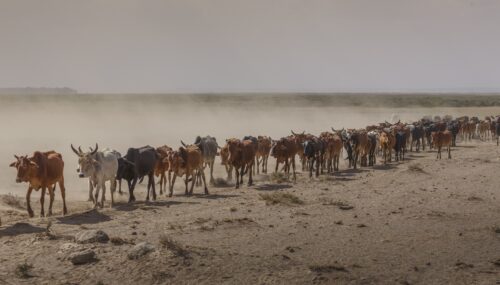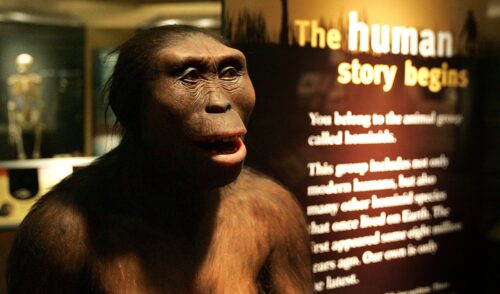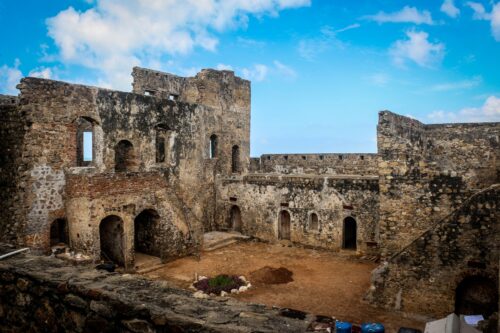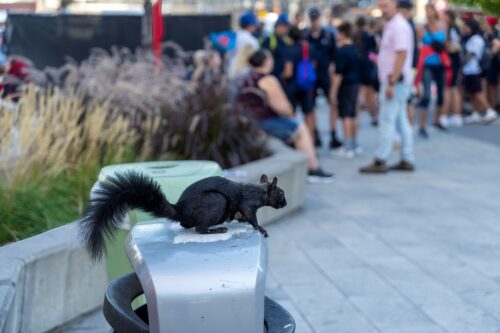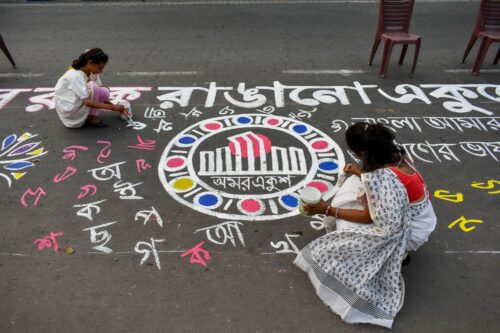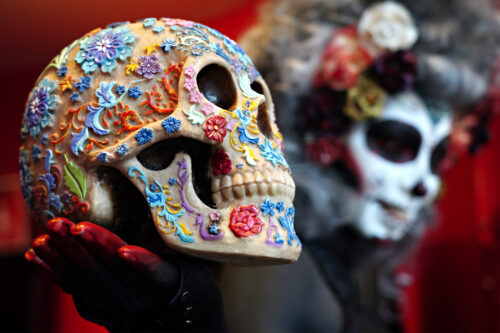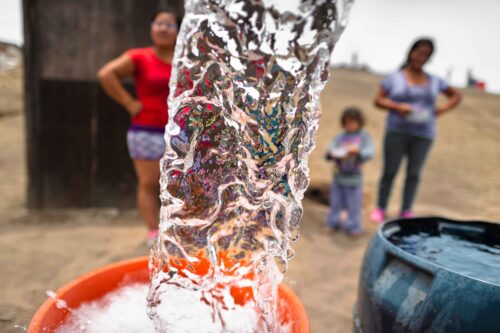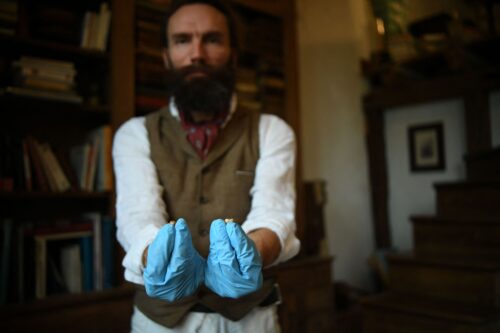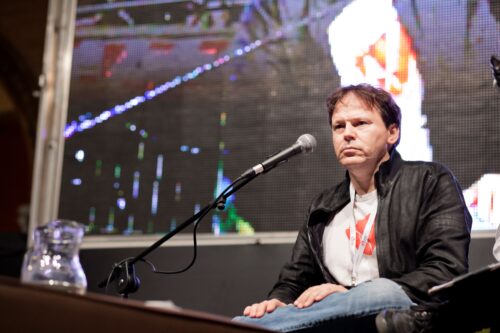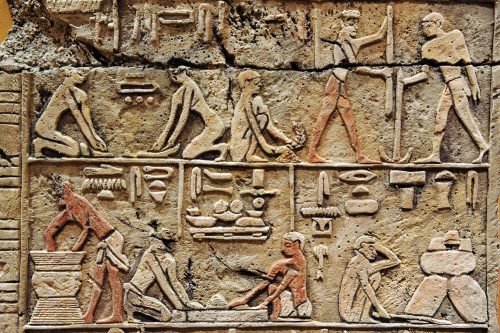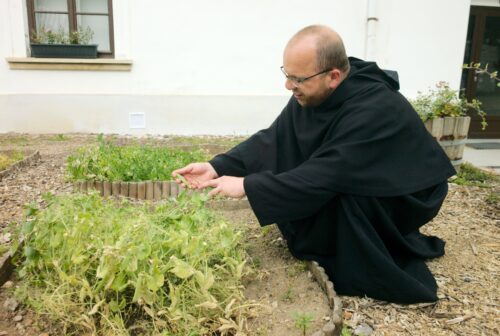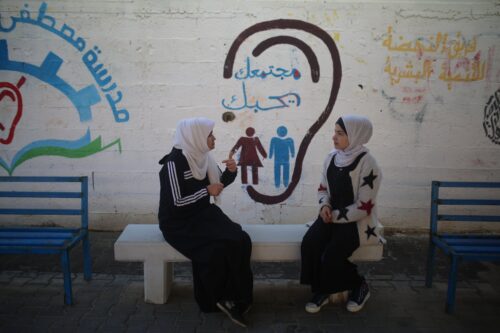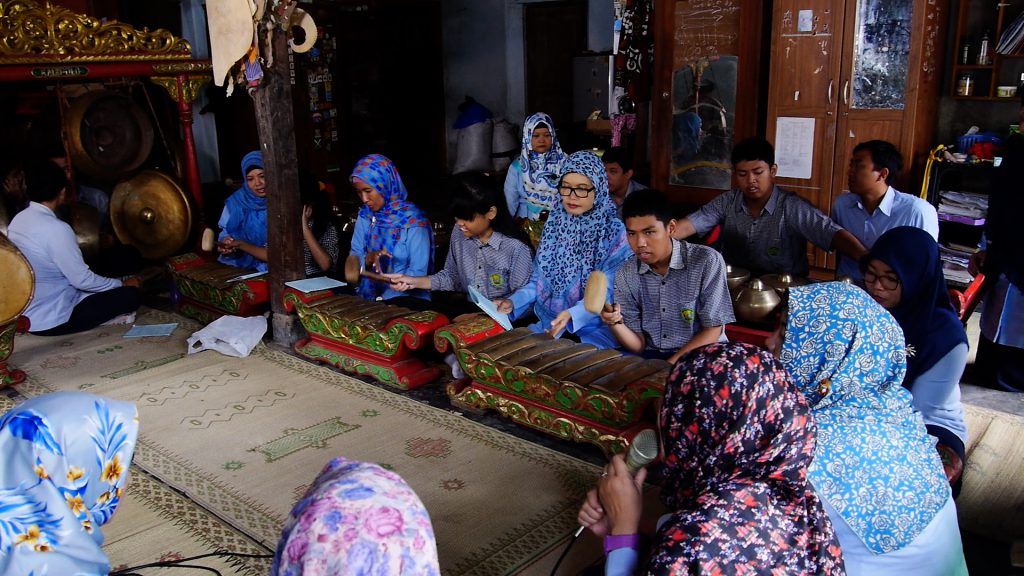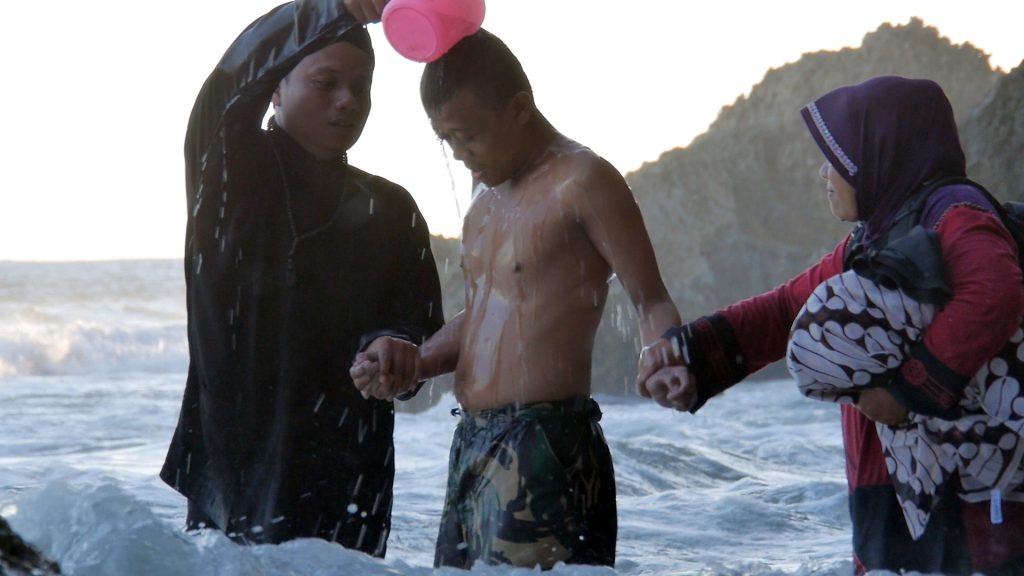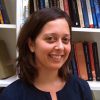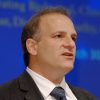Nurturing Autism Acceptance in Indonesia
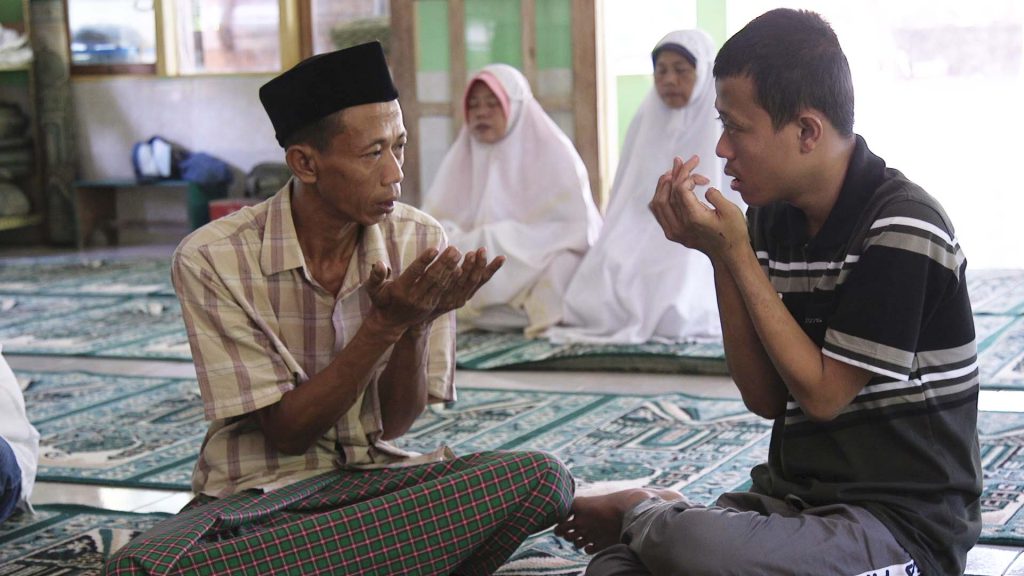
On a typical day, Wawan, a teenager living in Yogyakarta, Indonesia, wakes up early for pre-dawn prayer before his school day begins. In the afternoon, he might walk with his friends to the corner shop to buy a snack before helping with chores at his boarding house and practicing for an upcoming prayer recitation competition. Socially connected and educationally engaged, Wawan is thriving—but the journey to this point in his life took some time and effort.
When Wawan was young, his family was perplexed by his behavior. He didn’t respond to his name or play with toys, only a metal spoon. He had difficulty sitting still, and loud noises distressed him. He was clearly intelligent, with a gift for reading and memorization, but his speech was delayed. When Wawan eventually started speaking, instead of having typical conversations, he would recite daily updates like a television newscaster.
One day, Wawan’s mother, Rauda, read a newspaper article about autism. Struck by how accurately the article seemed to describe her son’s talents and challenges, she took him for evaluation at the city hospital. The formal diagnosis given confirmed her suspicions.
At first this new insight was of little use, though. The local school was unfamiliar with autism and locally available therapies were few. Then a visiting therapist told them about Bina Anggita, a new and innovative private school on the neighboring island of Java, a two-hour flight away, that was helping students with autism thrive. The family was reluctant to send Wawan so far away, but when the founder of the school agreed to provide room and board, they decided to give it a try.
Wawan has flourished at Bina Anggita. In addition to an individualized educational plan and appropriate therapies, students are encouraged to pursue a wide variety of extracurriculars. This includes participating in religious and civic life and learning and performing traditional Javanese arts. These activities not only help children find their passions and abilities, but their public engagements raise awareness about the potential of autistic youth and promote their social integration.
In espousing an abilities-based view of autism and prioritizing positive representation and local outreach, the Bina Anggita community has been part of a grassroots movement led by parents and educators in Indonesia that has gained momentum over the past 20 years. Though there were (and still are) no reliable official statistics, some estimated in 2010 there were more than 1 million autistic Indonesians; others suggested that as many as 2.4 million, or 1.14 percent or more of the total population of approximately 237.5 million people, were on the spectrum, with numbers likely increasing each year.
Thanks in part to efforts like Bina Anggita’s, a diagnosis of autism in Indonesia now comes with growing expectations for support, education, and inclusion.
DOCUMENTING DEVELOPMENTAL DIFFERENCE
I (co-author Annie) saw the impact of these efforts firsthand when I first met Wawan in 2011. Soon after he came to Yogyakarta, I watched him perform gamelan, a traditional orchestra made of metallophones, gongs, and drums, with his classmates and teachers at a local festival. At one point, wearing a batik sarong and a Javanese blankon hat, Wawan proudly took center stage for a spirited vocal solo.
I had come from the U.S. to Java as part of my dissertation research in anthropology to study the role culture played in understanding and responding to the developmental differences associated with the autism spectrum. In 2011, a diagnosis of autism in Indonesia was still comparatively novel, and the introduction and dissemination of this globalized concept was bringing change for some affected individuals and their families.
More than a decade later, Wawan is a young adult, and more Indonesians are aware of autism. Elemental Productions, our ethnographic filmmaking team led by co-author Robert, has followed Wawan and his classmate Idris for years and made two new documentaries about their stories: Wawan’s Prayer and All God’s Children. Several of our previous films directed by Robert, which document personal experiences of difference and stigma, have been used for mental health awareness and advocacy purposes in Indonesia.
Before learning about autism, many Indonesian parents we’ve met report there being no local term for their child’s difference that felt right. There were many, however, that felt wrong. Family members suggested their child might be possessed by an evil spirit or struck by black magic, a common explanation for a variety of ills, maladies, and misfortunes. Local pediatricians decided the children’s seeming lack of social response meant they must be deaf. Neighbors whispered that their child might be mentally slow or “left behind.”
As our films show, with or without a formal diagnosis of autism, families find various ways to make sense of and support their children.
Many turn to their faith. Indonesia as a whole and the island of Java is majority Muslim, and religious affiliation is a requisite of citizenship. Spiritual beliefs provide idioms and practices for understanding and persevering through the challenges of difference and strengthening community ties. Some people also turn to religious or spiritual healers who can channel divine wisdom and provide comfort.
Other indigenous treatments that may help autistic children include the robust tradition of therapeutic massage, which can provide the sensory input some on the spectrum find regulating and relaxing. Some parents find ways to integrate their children into the community, such as opening small home-schools. If the child’s behaviors are not perceived as aggressive, Indonesian family structures and daily routines are also relatively accommodating and tolerant of differences.
Once they have a diagnosis, many families try to combine local strategies with globalized biomedical, educational, and specialized therapeutic supports used for autistic people. But accessing the latter can be challenging.
Though Indonesian law has long mandated the education of disabled children—including ratifying the United Nations Convention on the Rights of Persons With Disabilities (which the U.S. has yet to do)—there is minimal enforcement of accessibility laws. Health and educational service infrastructures are scarce outside of major urban areas. Moreover, even enthusiastic educators mostly lack the familiarity or formal training that could be beneficial to autistic children. If they can afford it, families are often forced to travel—or relocate, like Wawan—to access appropriate therapies.
These limitations can be quite frustrating: The introduction of the globalized diagnosis of autism provides parents with intriguing new insights into their child’s condition, but with the lack of supportive infrastructure, they may feel like there is nothing they can really “do” about it.
TRANSLATING A GLOBAL DIAGNOSIS
Some families may feel they have little means to respond to their situation, instead suffering stigma or confining autistic children to their home.
This is what happened to one of Wawan’s classmates, Idris, before he came to Bina Anggita. Idris was diagnosed quite young. After a typical infancy, his development seemed to slow compared to that of his identical twin, Idrus. Around the age of 2, he lost his ability to speak.
Idris’ main caretaker, Isti, his mother, loved him very much but was also ashamed of him. Indonesian society, and especially Javanese communities such as Idris’, highly prize harmonious social interactions, calm demeanors, and appropriate etiquette. But Idris’ behavior was unpredictable—he sometimes hit or pushed strangers, grabbed things, or made loud, harsh vocalizations. Afraid that her son might cause serious harm and that people in her rural community would blame her for his transgressions, Isti increasingly kept Idris isolated. She continued to pursue treatments with traditional and alternative healers, known as dukun, but saw little improvement.
Eventually, Hermi, a mother whose child attended Bina Anggita, was alerted to Isti and Idris’ situation and reached out to the family. She is the founder of a parent’s association known as Forum Kompak (loosely translated as Unified Forum). As our film documents, Hermi and her son, Osa—an electronics whiz—helped Isti see new possibilities for Idris’ life and supported the family in finding a scholarship for him to enroll at the school.
Hermi also reached out to the family’s local community, including a network for mothers and families known as Pemberdayaan Kesejahteraan Keluarga (PKK). Present throughout Indonesia, PKK groups stem from a governmental initiative to empower women to help local families with health, education, and household needs. Hermi knew that tapping into these preexisting networks would be the best way to spread autism awareness and support Idris and his family in the long term.
Hermi’s intervention was crucial. Families new to autism must manage and digest a lot of new information, most of which has been developed outside of Indonesia—indeed, most of the resources are in English. Indonesian parents often feel discouraged, overwhelmed, and alienated when faced with this new knowledge, as they worry about being unable to provide the “right” interventions available elsewhere. Hermi acted as a cultural translator, empowering the family to combine global concepts and interventions for autism with local social structures and traditions that worked for them.
INCREASING INCLUSION AND VISIBILITY
Hermi and other mediators in the growing autism acceptance movement in Indonesia share a global understanding of autism as a brain-based difference affording different abilities and particular challenges—a condition that is recognizable but not shameful. They enforce the idea that people with autism have a right to education and therapeutic support, and bring Indonesian parents into a wider community of like-minded others who will accept, understand, and advocate for people with autism and their families.
They also ensure that Indonesian parents feel seen and can see a clear path moving forward, by situating these conversations about disability within culturally familiar frameworks and idioms. These include Javanese concepts of cooperation and help (gotong-royong), and Indonesian ideas about tolerance for the ethnic, cultural, and linguistic diversity across the archipelago. Re-framed in this way, autism is another aspect of diversity, another opportunity to develop mutual understanding and lend a hand.
As our films show, for Indonesian families, one of the most meaningful ways that Bina Anggita helps with social integration is by including autistic children in religious spaces and practices, such as teaching children how to pray.
After attending Bina Anggita, Idris saw advances in daily life and academic skills, made friends, and began to more frequently and freely interact with his community. But being able to join his family and community in prayer was one of the most significant signals and benefits of his increasing social inclusion.
For Wawan, too, enthusiastic membership in his Islamic community has been important. With his skill for memorization and passion for performance, he has been participating in prayer recitation competitions—earning respectful recognition and winning awards at the regional level.
Wawan and Idris’ experiences of inclusion and visibility are resonating throughout Indonesia. Our recent documentaries join other films, memoirs, art campaigns, and social media activism campaigns to shine a light on the trials and abilities that often accompany autistic difference. This wider conversation is amplifying the power of personal experience and revealing the importance of syncretic, culturally relevant responses to support individuals on the spectrum, their families, and communities.





